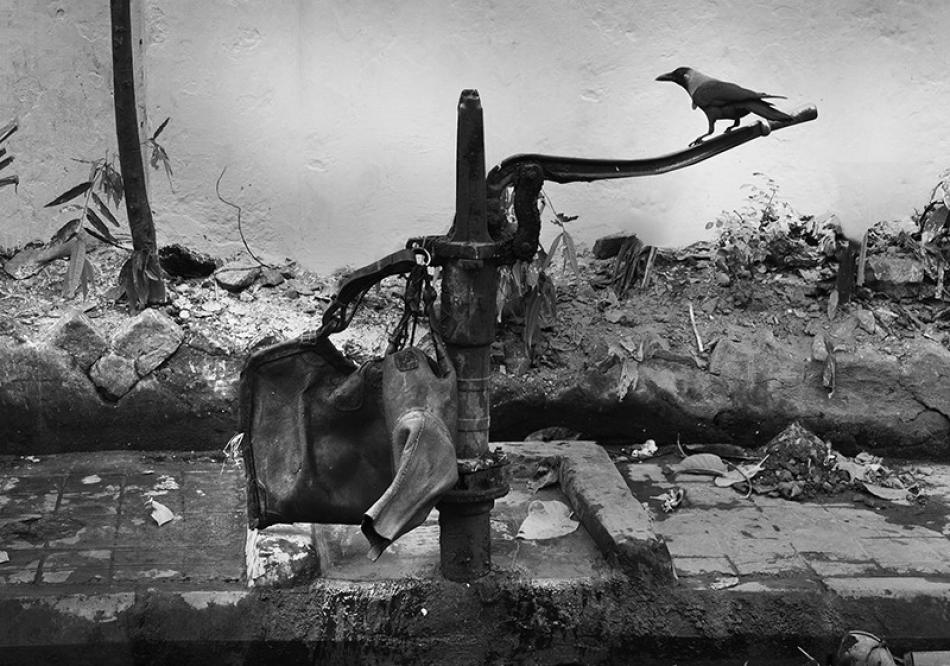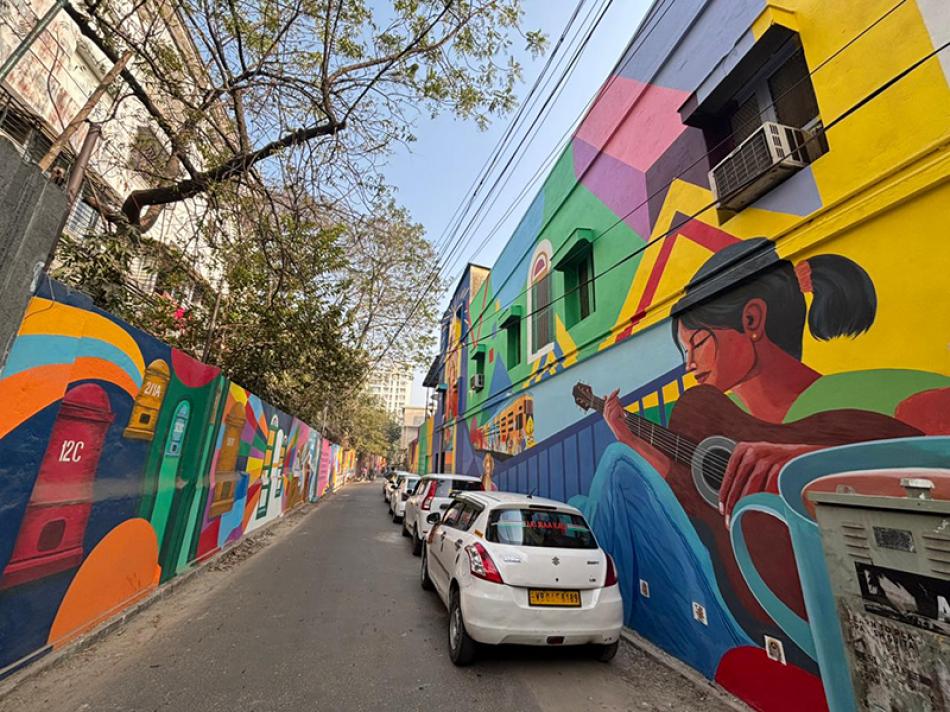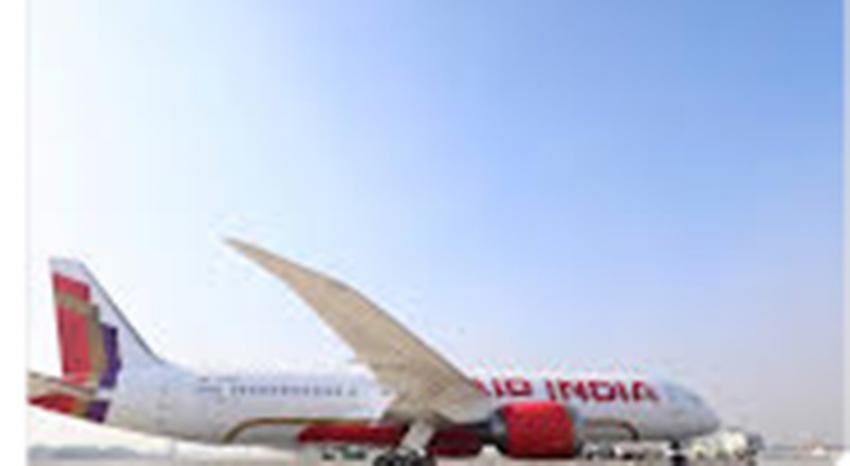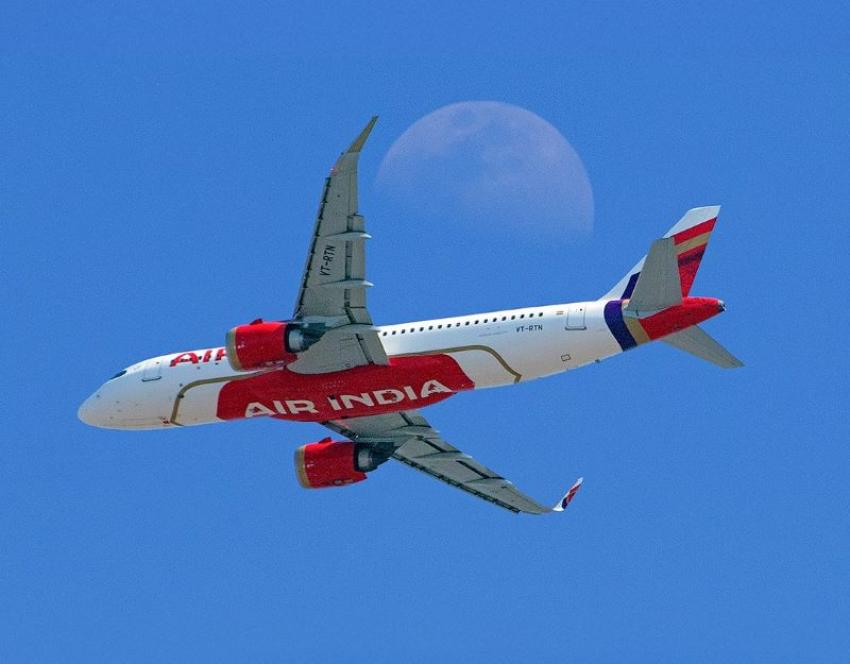Trans World Features 01 Jul 2013, 06:55 am
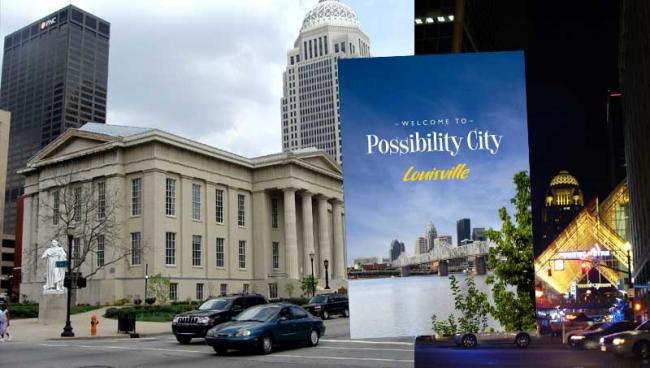
Sujoy Dhar
In the darkness of the wee hours when I reached Louisville by bus all I could vaguely figure out was a silhouetted cluster of skyscrapers, two bridges on the Ohio River and a network of flyovers. I had passed through many similar U.S. cities on the road. So on the face of it, Louisville seemed no different. It is not a very big American city with bright lights. It is, rather, a charming, easy-paced, urban centre.
But in the days that followed, Louisville surprised and impressed me. The “Possibility City” gradually grew on me. It’s the hometown of boxing legend Mohammad Ali and the world-famous Kentucky Derby horse race. It’s close to Kentucky’s Bourbon (indigenous whiskey) Trail, Mammoth Cave National Park and the Appalachian Mountains. It features Kentucky’s own unique music—bluegrass—and a wisp of night life in a buzzing street full of restaurants and bars called Fourth Street Live. Ultimately, Louisville offers a little bit of everything.
Greater Louisville Inc.—The Metro Chamber of Commerce is aggressively promoting the city in partnership with the Indian community. The group says:
“Alive with potential and inspired with a progressive spirit of possibility, Louisville lies just between ‘way out there’ and ‘feels like home.’ It’s a thriving one-of-a-kind, don’t-take-no-for-an-answer sort of city. Can a place be urban-but-green, intimate-but-expansive, surprising-yet-comforting, energetic-and-laid-back, what-if and can-do all at once? It can if it’s ‘possibility city’.”
Those associated with the promotion of Louisville are proud of their city. My 10-day stay made me a convert, too. I would say it is an immensely livable city by all standards.
“The very essence of Louisville is that ‘it’s possible here.’ That means no matter what your goal is—to perform world-class research, to open a tattoo parlor, to meet other gardening enthusiasts—you can achieve it here. And we are promoting that with the active participation of the prosperous Indian community of Louisville and around,” says Michael Iacovazzi-Pau, manager of international programs for Greater Louisville, Inc.
“Now more than ever, it is possible to be a thriving international professional in our community, thanks to the Greater Louisville International Professionals program. This program is the first of its kind in the nation, and helps international talent network and grow their ideas and businesses in the region,” he says.
Louisville is poised to continue attracting human and financial capital from around the world thanks to its current position in several strategic sectors, including advanced manufacturing and logistics, health sciences, research and development, food and beverage, franchise management, and aging care.
I saw a bunch of hospitals and research centers and met some of the top-notch people from the scientific and research community, including cancer researcher Dr. A. Bennett Jenson of the University of Louisville’s James Graham Brown Cancer Center. Jenson helped invent the world’s first cervical cancer vaccine. The center is working with India’s Chittaranjan National Cancer Institute of Kolkata on treating cervical cancer.
As I found out later from its director, Dr. Donald Miller, the center has strong Indian connections.
“We are very excited to try to develop a less expensive vaccine for cervical cancer and we chose India specifically because of our long-standing relations through our interest with the disease,” Miller says. “We have a very close relationship [with Dr. Partha Basu of the Chittaranjan National Cancer Institute]. Locally, one of our board members, who is a native of India, Poorna Kemparajurs, has helped us activate the Indian community to support what they are doing.”
According to Iacovazzi-Pau, the University of Louisville and the world-class research taking place there is a strong resource. “Much of this research is being commercialized into products helping people around the world, like the new HPV vaccine for cervical cancer,” he says.
The city is home to the headquarters of Humana Inc., one of America’s largest health insurance companies; GE Appliances & Lighting worldwide; Yum!, the parent company of Taco Bell, KFC, Pizza Hut and Long John Silver’s; Brown-Forman, one of the largest American-owned wine and spirits companies; and Signature Healthcare, an innovative long-term care provider.
Yum! now plans to accelerate its expansion in India with an investment blueprint of about $120 million over the next five years, apart from $100 million already invested.
Yum! targets India’s organized food and beverage market, which is growing rapidly. The company plans to generate $1 billion in revenue by 2015. Its long-term plan is to put India on a similar platform as China, where it operates 3,500 outlets.
Brown-Forman is also eying India.
“The Indian market is extremely important for us. It is the world’s largest whiskey market,” says Amrit Singh, the Indian American area director of the maker of Jack Daniel’s Tennessee Whiskey. Jack Daniel’s Distillery is owned by Brown-Forman.
Kentucky, meanwhile, is the third largest state for automotive production, creating thousands of jobs, from manufacturing to distribution and supplies. Both Ford and Toyota have a large presence in the state.
Interestingly, Louisville’s burgeoning Indian American community is playing a big role in the promotion of their city. It is estimated that close to 4,000 Asian Indians live in Louisville, surpassing the number of those with Asian-Pacific heritage. As a result, many Indian-owned small and medium-sized companies have surfaced, ranging from retail outlets and restaurants to consulting firms, outsourcing business services, technology firms and more.
Says India-born Sundeep Dronawat, president and general manager of Bellwether Software, and co-founder of Rural America Onhsore Sourcing: “I went from a lonely immigrant in Louisville to a graduate student to a successful business person. I have lived here for 18 years and call it my home. Louisville is a perfect location for businesses to grow and thrive. The University of Louisville and other universities can provide world-class talent. It is within driving distance of major cities in the Midwest and is a big transportation and logistics hub.”
According to another Indian American entrepreneur, Vidya Ravichandran, president of the IT firm GlowTouch Technologies, the business climate in Louisville has been a very open one, “welcoming people from various countries and embracing them into the local business community. Louisville is a hidden gem, a surprising cosmopolitan center for enterprising communities like the Indians.”
Indian American entrepreneurs Purna Veer of V-Soft Consulting Group and Suhas Kulkarni of Omnisys vouch for that. V-Soft relocated to Louisville in 1998 so that Veer’s wife could do her residency at the University of Louisville’s School of Medicine. V-Soft is now a comprehensive IT firm that offers staffing, training, consulting and application-development services.
Other corporate leaders from the Indian American community working for large corporations are Rishabh Mehrotra, Raja Rajamannar and Micky Pant.
While Mehrotra is the CEO and president of SHPS, a provider of integrated health solutions, Rajamannar is the chief innovation officer at Humana Inc. Micky Pant is president of global brand building for Yum! Brands.
In the university sector, Indians play a significant role in education and research, to the extent of creating relations with India cells to exchange business practices or share knowledge and research. The best example is perhaps the James Graham Brown Cancer Center, which is part of the University of Louisville.
According to Iacovazzi-Pau, Indians who come to Louisville represent a highly-educated pool of talent, which is essential for any company to prosper in a global economy. The Indian community is heavily engaged in several strong sectors, including the medical field, technology, and corporate leadership. Some of the surgeons, physicians, and specialists from India are highly ranked or have opened their own successful practices.
“As a community, Indians play an integral part in developing the quality of life in Louisville. By bringing our culture, food, and music, and by celebrating and exposing our values, Louisville is enriched in a true sense,” says Dronawat.
The Indian community also brings technological skills often in short supply in the labor force. Several companies provide IT support or job placement for IT projects, from on- and offshore locations. Key corporate executives from India are now serving on the boards of Fortune 500 companies and fast-growing businesses.
“From a business perspective, Indians create jobs and help local companies fill challenging jobs in technological and medical sectors. They truly make it possible for Louisville to pursue its vision of becoming a “possibility city,” by providing the resources and skills we need to make Louisville known in the health science, logistics, and engineering and development world,” says Iocavazzi-Pau.
According to Dronawat, a former chairman of the India Community Foundation, as more Indians choose Louisville as their place to live and work, more people in India learn about the possibilities that Louisville offers.
In April, Louisville hosted former Indian President A.P.J. Abdul Kalam, whose visit was initiated by Dean Sudharshan of the Gatton School of Business at the University of Kentucky. This university, in Lexington, developed an India Institute of Excellence last year to foster exchange of knowledge and ideas and link Kentucky and India through scholar exchange programs and virtual conferences. Officials hope this improves the quality of education and promotes the development of economic projects throughout Kentucky.
“This year for the first time, Dr. Kalam and Dean Sudharshan envisioned a more regional outreach, touching the business community and the University of Louisville and the whole Indian community here,” says Dronawat.
The co-hosts of the visit were Greater Louisville International Professionals, the India Community Foundation, the University of Louisville, and the World Affairs Council of Kentucky and Southern Indiana.
For a period of six months, the four organizations collaborated to plan and execute a formal banquet that attracted more than 600 community leaders, professionals and executives.
“It was the first time in the history of Louisville that all the Indian organizations and communities came together to support such a prestigious event,” says Iocavazzi-Pau. “Dr. Kalam brought world knowledge to Louisville and enlightened our community with his vision of a world of shared knowledge and a peaceful planet.”
- This New Place at Zurich’s Bürkliplatz is Quietly Becoming Everyone’s Favourite Stop
- From ancient sea routes to your plate: Taj Bengal’s Jatraa is Kolkata’s must-taste food voyage
- This City is Quietly Redefining What a Holiday Experience Looks Like
- Saigon Sisters in Chicago — A Dumplings & Bao Love Story
- Beyond Old and New: Bickram Ghosh and the Art of Fusion at Serendipity
- From Kennedy’s Proposal to 1850s Saloons: The Three Historic D.C. Restaurants Everyone Must Try
- This city has the best bagel in the US, and it’s not New York!
- I escaped to Pachmarhi — what I found in the queen of Satpura left me spellbound
- Air Canada just ranked the Best New Restaurants of 2025 - And the Top Spot isn't who you think
- Rediscovering Arunachal's Monpa Cuisine: One Woman’s Millet Momo Revolution
Indian airline major Air India today announced a significant enhancement to its popular Mumbai-Frankfurt route, with the deployment of its newly delivered, first line-fit (or made-for-Air India)
Saudia, the national flag carrier of Saudi Arabia, and Air India, India’s leading global airline, have signed a codeshare agreement that will take effect in February.
Air India and Saudi Arabia’s flag carrier Saudia will begin a new codeshare partnership from February, allowing both airlines to offer expanded route options and smoother connections for passengers travelling between the two countries.

